上一頁下一頁

野球魂2010應援歌-統一獅林子豪

野球魂2010應援歌-西武獅山川穂高

野球魂2010應援歌-樂天桃猿邱丹

野球魂2010應援歌-中信兄弟潘志芳

野球魂2010應援歌-富邦悍將Chance曲「強悍出擊」26

野球魂2010應援歌-富邦悍將Chance曲「強悍出擊」27

野球魂2010應援歌-富邦悍將Chance曲「強悍出擊」28
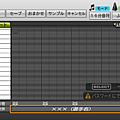
野球魂2010應援歌-富邦悍將Chance曲「強悍出擊」29

野球魂2010應援歌-富邦悍將Chance曲「強悍出擊」

野球魂2010應援歌-中信兄弟陳文杰
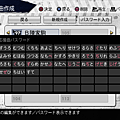
野球魂2010應援歌-中信兄弟岳政華

野球魂2010應援歌-中信兄弟許基宏
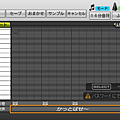
野球魂2010應援歌-中信兄弟許基宏2
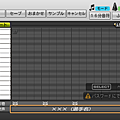
野球魂2010應援歌-中信兄弟許基宏3

中信兄弟陳家駒

富邦悍將林宥穎

樂天桃猿郭永維

樂天桃猿林智平

樂天桃猿梁家榮

中信兄弟江坤宇

統一林祖傑
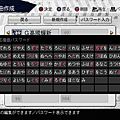
富邦悍將戴培峰

富邦悍將高國輝新

野球魂2010應援歌-統一林靖凱
![sshot-2019-野球魂2010應援歌-12強日本隊Chance曲11-10-[07-12-10]](https://pic.pimg.tw/ohgi01/1573341608-1664694663_s.png)
sshot-2019-野球魂2010應援歌-12強日本隊Chance曲11-10-[07-12-10]

野球魂2010應援歌-12強中華隊Chance曲

中信兄弟Chance曲「兄弟精神」

野球魂2010應援歌-中信兄弟彭政閔

野球魂2010應援歌-統一鄧志偉

野球魂2010應援歌-統一唐肇廷

野球魂2010應援歌-中信兄弟林書逸

野球魂2010應援歌-富邦悍將范國宸
![sshot-2019-09-13-[06-29-50]](https://pic.pimg.tw/ohgi01/1568327918-1361231076_s.png)
sshot-2019-09-13-[06-29-50]
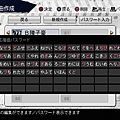
野球魂2010應援歌-中信兄弟吳東融

野球魂2010應援歌-統一黃恩賜

野球魂2010應援歌-中信兄弟王威晨

野球魂2010應援歌-統一林安可

野球魂2010應援歌-中信兄弟岳東華

野球魂2010應援歌-中信兄弟岳東華
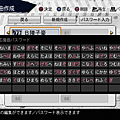
野球魂2010應援歌-中信兄弟陳子豪
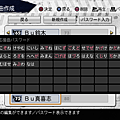
野球魂2010應援歌-近鉄真喜志康永

野球魂2010應援歌-近鉄山下和彦

野球魂2010應援歌-大洋ポンセ

野球魂2010應援歌-近鉄山下勝己
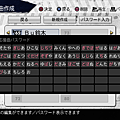
野球魂2010應援歌-近鉄オグリビー

野球魂2010應援歌-近鉄村上隆行

野球魂2010應援歌-近鉄金村義明

野球魂2010應援歌-近鉄鈴木貴久
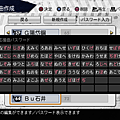
野球魂2010應援歌-近鉄石井浩郎

野球魂2010應援歌-近鉄ブライアント

野球魂2010應援歌-近鉄新井宏昌

野球魂2010應援歌-近鉄大石大二郎
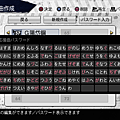
野球魂2010應援歌-統一制霸天下

野球魂2010應援歌-Lamigo柏納帝那

統一安打曲

G李宗賢

M陳晨威

G王正棠完整

F王柏融2

F王柏融

富邦悍將申皓瑋
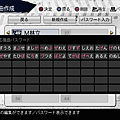
富邦悍將王正棠
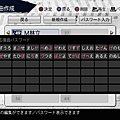
富邦悍將王正棠

富邦悍將高國麟新

Lamigo林立

統一吳桀睿

統一郭阜林

富邦悍將Chance曲「GO富邦悍將」

富邦悍將陳品捷

野球魂2010應援歌-Lamigo我是老大(成吉思汗)
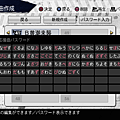
野球魂2010應援歌-Lamigo廖健富(不含前奏版)

統一「火力全開」

中信兄弟Chance曲「黃潮來襲」

野球魂2010應援歌-Lamigo廖健富(含前奏、不完整版)

野球魂2010應援歌-富邦悍將張正偉
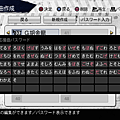
野球魂2010應援歌-統一高志綱新(七龍珠)

野球魂2010應援歌-富邦悍將高孝儀

富邦林威廷

野球魂2010應援歌-富邦悍將胡金龍
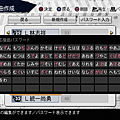
野球魂2010應援歌-中信兄弟詹子賢
上一頁下一頁
相片最新留言
此相簿內的相片目前沒有留言
此相簿內的相片出現在:
相簿列表資訊
- 最新上傳:
- 2022/04/15
- 全站分類:
- 電玩動漫
- 本日人氣:
- 0
- 累積人氣:
- 522

常見的半導體材料有矽、鍺、砷化鎵等
/
晶片測試
晶片處理高度有序化的本質增加了對不同處理步驟之間度量方法的需求。晶片測試度量裝置被用於檢驗晶片仍然完好且沒有被前面的處理步驟損壞。如果If the number of dies—the 積體電路s that will eventually become chips—當一塊晶片測量失敗次數超過一個預先設定的閾值時,晶片將被廢棄而非繼續後續的處理製程。
/
晶片測試
晶片處理高度有序化的本質增加了對不同處理步驟之間度量方法的需求。晶片測試度量裝置被用於檢驗晶片仍然完好且沒有被前面的處理步驟損壞。如果If the number of dies—the 積體電路s that will eventually become chips—當一塊晶片測量失敗次數超過一個預先設定的閾值時,晶片將被廢棄而非繼續後續的處理製程。
/
步驟列表
晶片處理
濕洗
平版照相術
光刻Litho
離子移植IMP
蝕刻(干法蝕刻、濕法蝕刻、電漿蝕刻)
熱處理
快速熱退火Annel
熔爐退火
熱氧化
化學氣相沉積 (CVD)
物理氣相沉積 (PVD)
分子束磊晶 (MBE)
電化學沉積 (ECD),見電鍍
化學機械平坦化 (CMP)
IC Assembly and Testing 封裝測試
Wafer Testing 晶片測試
Visual Inspection外觀檢測
Wafer Probing電性測試
FrontEnd 封裝前段
Wafer BackGrinding 晶背研磨
Wafer Mount晶圓附膜
Wafer Sawing晶圓切割
Die attachment上片覆晶
Wire bonding焊線
BackEnd 封裝後段
Molding模壓
Post Mold Cure後固化
De-Junk 去節
Plating 電鍍
Marking 列印
Trimform 成形
Lead Scan 檢腳
Final Test 終測
Electrical Test電性測試
Visual Inspection光學測試
Baking 烘烤
/
有害材料標誌
許多有毒材料在製造過程中被使用。這些包括:
有毒元素摻雜物比如砷、硼、銻和磷
有毒化合物比如砷化三氫、磷化氫和矽烷
易反應液體、例如過氧化氫、發煙硝酸、硫酸以及氫氟酸
工人直接暴露在這些有毒物質下是致命的。通常IC製造業高度自動化能幫助降低暴露於這一類物品的風險。
/
Device yield
Device yield or die yield is the number of working chips or dies on a wafer, given in percentage since the number of chips on a wafer (Die per wafer, DPW) can vary depending on the chips' size and the wafer's diameter. Yield degradation is a reduction in yield, which historically was mainly caused by dust particles, however since the 1990s, yield degradation is mainly caused by process variation, the process itself and by the tools used in chip manufacturing, although dust still remains a problem in many older fabs. Dust particles have an increasing effect on yield as feature sizes are shrunk with newer processes. Automation and the use of mini environments inside of production equipment, FOUPs and SMIFs have enabled a reduction in defects caused by dust particles. Device yield must be kept high to reduce the selling price of the working chips since working chips have to pay for those chips that failed, and to reduce the cost of wafer processing. Yield can also be affected by the design and operation of the fab.
Tight control over contaminants and the production process are necessary to increase yield. Contaminants may be chemical contaminants or be dust particles. "Killer defects" are those caused by dust particles that cause complete failure of the device (such as a transistor). There are also harmless defects. A particle needs to be 1/5 the size of a feature to cause a killer defect. So if a feature is 100 nm across, a particle only needs to be 20 nm across to cause a killer defect. Electrostatic electricity can also affect yield adversely. Chemical contaminants or impurities include heavy metals such as Iron, Copper, Nickel, Zinc, Chromium, Gold, Mercury and Silver, alkali metals such as Sodium, Potassium and Lithium, and elements such as Aluminum, Magnesium, Calcium, Chlorine, Sulfur, Carbon, and Fluorine. It is important for those elements to not remain in contact with the silicon, as they could reduce yield. Chemical mixtures may be used to remove those elements from the silicon; different mixtures are effective against different elements.
Several models are used to estimate yield. Those are Murphy's model, Poisson's model, the binomial model, Moore's model and Seeds' model. There is no universal model; a model has to be chosen based on actual yield distribution (the location of defective chips) For example, Murphy's model assumes that yield loss occurs more at the edges of the wafer (non-working chips are concentrated on the edges of the wafer), Poisson's model assumes that defective dies are spread relatively evenly across the wafer, and Seeds's model assumes that defective dies are clustered together.[25]
Smaller dies cost less to produce (since more fit on a wafer, and wafers are processed and priced as a whole), and can help achieve higher yields since smaller dies have a lower chance of having a defect. However, smaller dies require smaller features to achieve the same functions of larger dies or surpass them, and smaller features require reduced process variation and increased purity (reduced contamination) to maintain high yields. Metrology tools are used to inspect the wafers during the production process and predict yield, so wafers predicted to have too many defects may be scrapped to save on processing costs.[26]